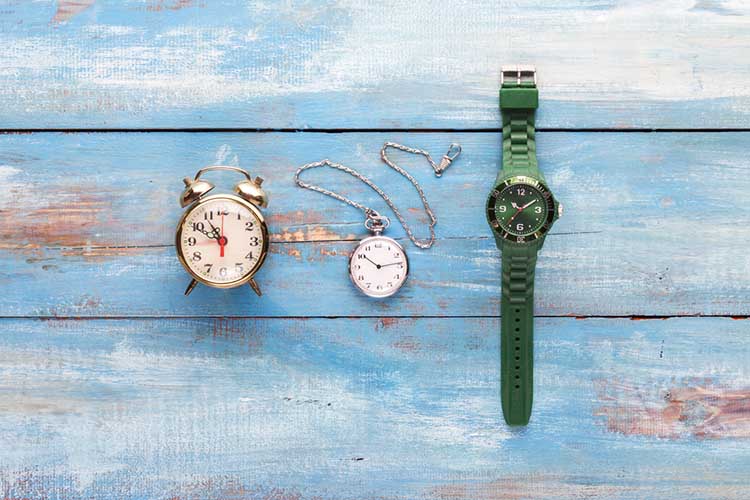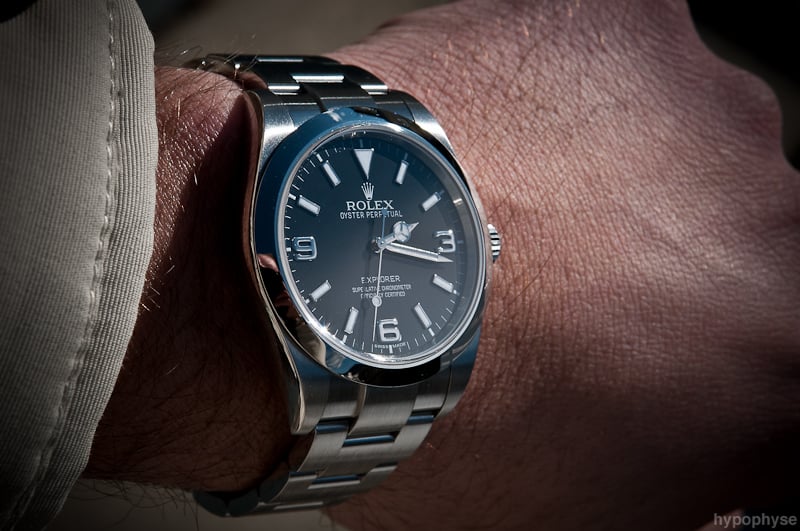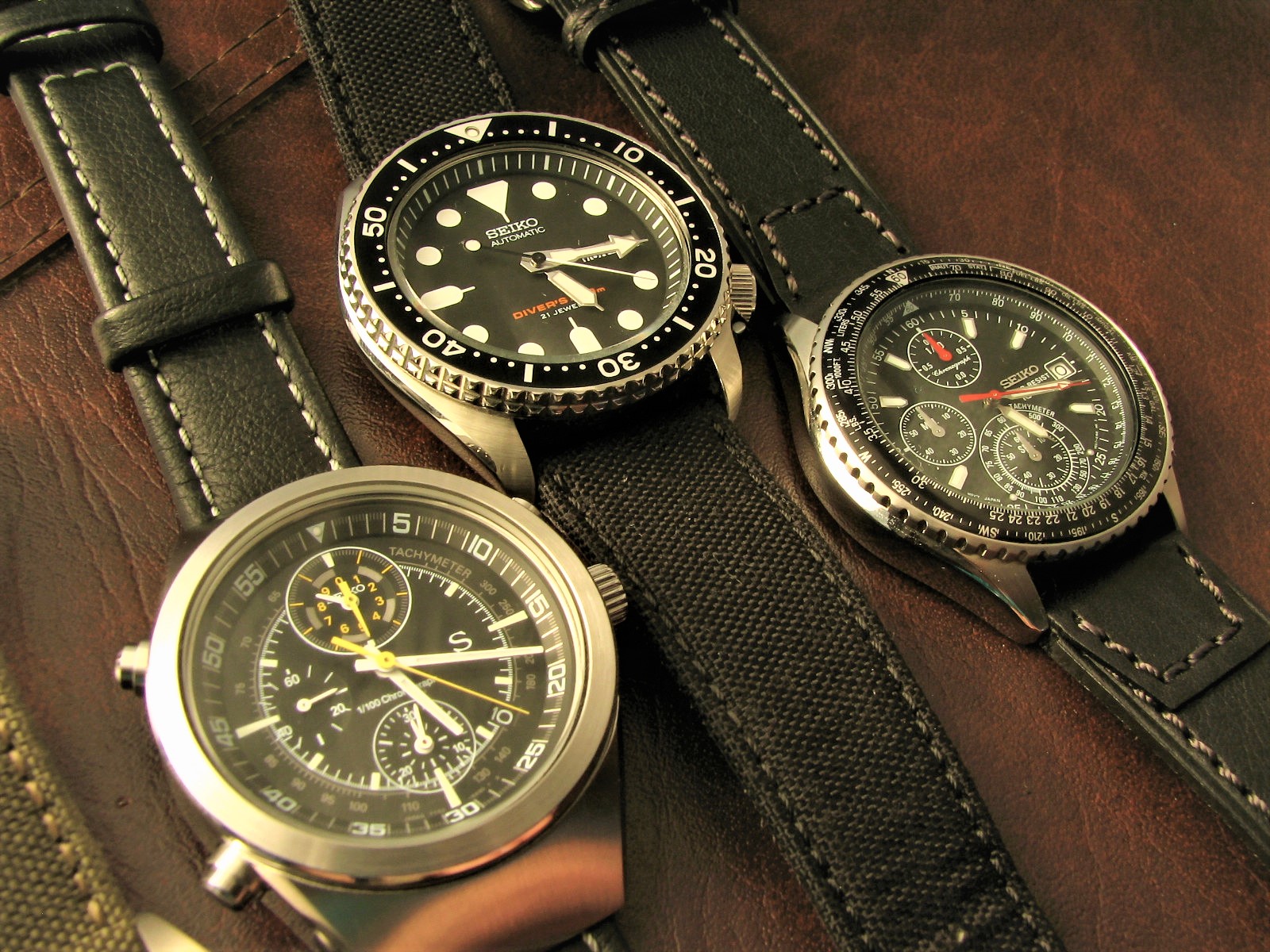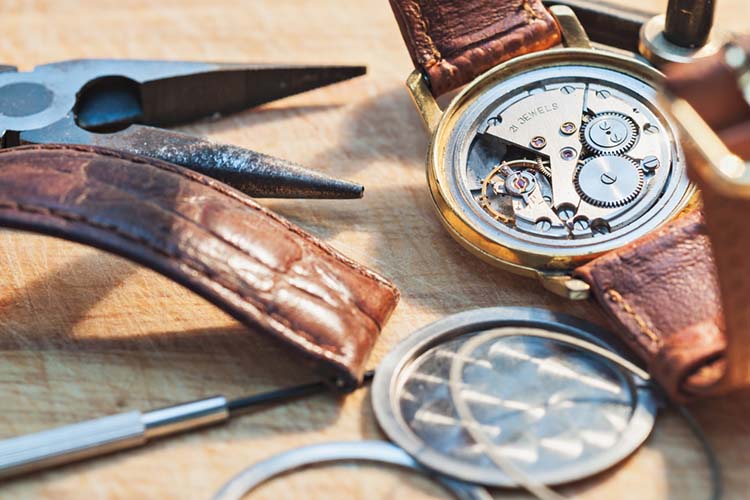In the watch community people often think there are two schools of thought when it comes to watch age, some collectors like to collect vintage models and some want the newest models available on the market.
The official definition of vintage is something from the past that has held or improved its value, often due to the high quality of its original manufacturer or certain design elements that are no longer used.
In this blog, we will be looking at vintage as a whole, the pros and cons of vintage watches and new watches and hopefully, clearing up some questions you may have about one or the other.
Table of Contents
Pros & Cons of Vintage Watches
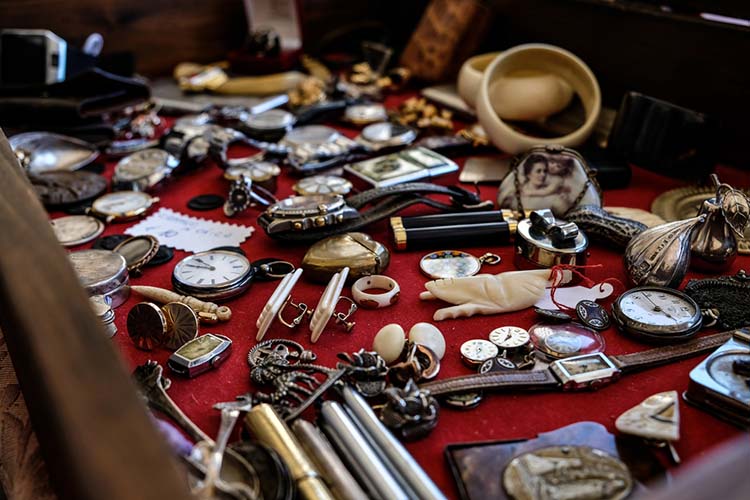
Pros of Vintage Watches
History
The most obvious pro of having a vintage watch is the fact that you have a watch with history and a much more interesting timepiece. A lot of watch enthusiasts just like to collect watches for their own enjoyment and are not looking to make money off of a watch.
Think of a vintage watch as an investment, even if you do not plan on selling it. You are buying a piece of history, and typically a showcase of expert craftsmanship and design, certain timepieces are timeless.
Non-Monetary Value
Another factor to consider is the non-monetary value that an item may hold. To put this into context, this could be a family heirloom, a watch that has been handed down generations, so it holds sentimental value as opposed to monetary value.
A vintage watch may have a certain defunct design or flaw that you are interested in, and as a collector, this can be something to look for, to have more of a story behind your vintage watch.
Cons of Vintage Watches
Condition
When you buy a new watch, you have a guarantee that it is going to be brand new and in mint condition, along with the receipt or warranty, you have some ways to ensure it stays up to code for an extended period of time.
Vintage, on the other hand, will be sold as seen, and you may not know how well the previous owners have looked after the watch. Obviously, you can see if there is any wear and tear on the timepiece, but it is much more likely to be less superficial and on the interior of the watch.
They Lose Their Value
As a rule of thumb, anything you buy will lose value as soon as you purchase it, something that is second or third hand will typically have less value than something new. Every additional owner of something will diminish the value of the item, regardless of the industry.
It is important to note that this is not the case with all brands, and some do hold their value, which we will cover a little later.
Pros & Cons of New Watches
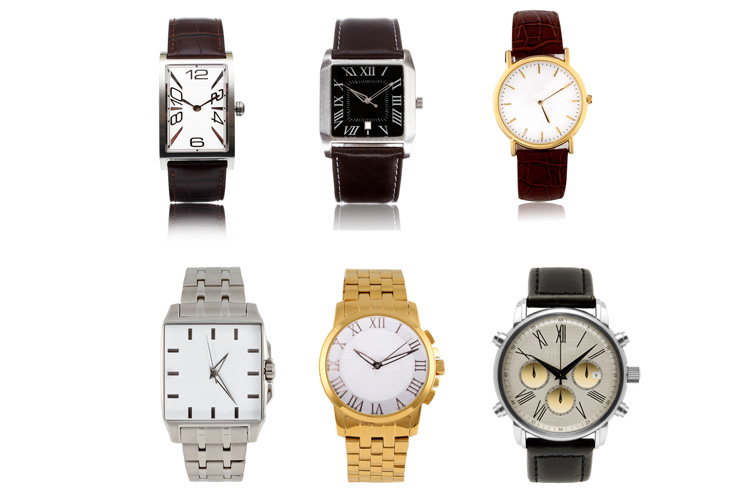
Pros of New Watches
Accountability
One of the major benefits of buying a new watch is having somewhere you can go back to if you have any problems or need any help. If your watch stops working or has a flaw, you can easily return it via a receipt or warranty through the manufacturer.
Having this level of security and accountability is an important factor in buying behavior and why a lot of newer watch collectors or buyers shop new.
Design & Durability
Watches have come an awfully long way since their inception and this can even be seen in five to ten-year cycles, the way watches are made and the materials used can differ massively.
For instance, a lot of modern watches will have some form of waterproofing, tend to be shock-resistant and much more durable than older models. Watches have shifted towards much more every day and multi-use accessories as opposed to luxury items.
Cons of New Watches
Price
There are so many factors that will affect price, but as a rule of thumb, a newer watch will be more expensive nine times out of ten. If you are looking at getting a new watch with the latest materials and technology you will be paying more than its vintage counterpart.
Some new watches even require you to go on a waiting list or sell out quickly, so anyone who can get their hands on the model will have to pay a scarcity premium as demand often outweighs supply.
Depreciation
As we all know, as soon as you purchase something such as a car or watch, its price will instantly depreciate. The textbook example is that as soon as you drive your car off the lot it has lost value.
Obviously, if you are just planning to keep or wear the watch, this factor is fairly irrelevant because you will not be planning on re-selling it at a later date. Regardless, it is important to note when you are buying a new watch.
How Long Before a Watch is Considered Vintage?
Each collector and watch enthusiast will probably have a different definition of what is or is not a vintage watch, so it can be hard to determine the exact amount of time to determine a timepiece vintage.
With this being said, as technology cycles are often every 5-10 years, you would need to have a timepiece that is at least 20-25 years old before it would come under the definition of vintage. If you are talking about an antique watch, that would be nearer 100 years old.
This is just a rough idea, and there are a lot of extraneous variables that affect when and how a timepiece is determined as a vintage model.
As we have mentioned, it does depend on the brand too, someone is unlikely to be interested in your low-cost watch from 20 years ago, but if you have a luxury Swiss watch, then you may be onto something.
Do Vintage Watches Go Up in Value?

The short answer is not short at all, there are so many nuances and factors to consider when investing in a watch with the mindset of it increasing in value or even just holding it.
There are two important things to think about when considering vintage watches’ value, if they hold their value or if they are going to appreciate and be worth more.
People likely consider certain vintage watches higher value than others, but what watch brands hold their value?
The ones that first come to most consumers’ minds are Rolex, Patek Philippe, Tag Heuer and Omega but there are quite a few that keep their value.
To oversimplify, choosing a classic or vintage watch will normally be a much better investment than a newer watch or a smartwatch. As technology shifts and designs change, the newer models will be outdated very quickly, whereas a vintage timepiece will hold its value over a newer model any day of the week.
Vintage Watches vs New Watches Summary
In the end, one or the other is not better, it is entirely down to personal preference and what you want in your watch or watch collection. Hopefully, now we have shed some light on the two ages of watches and why people lean to one or the other.
The beauty of the watch industry is how diversified it has become and the options available at all price ranges and preferences. Whatever you are looking for you will be able to find, regardless of style, color or age there is a watch for everyone.

